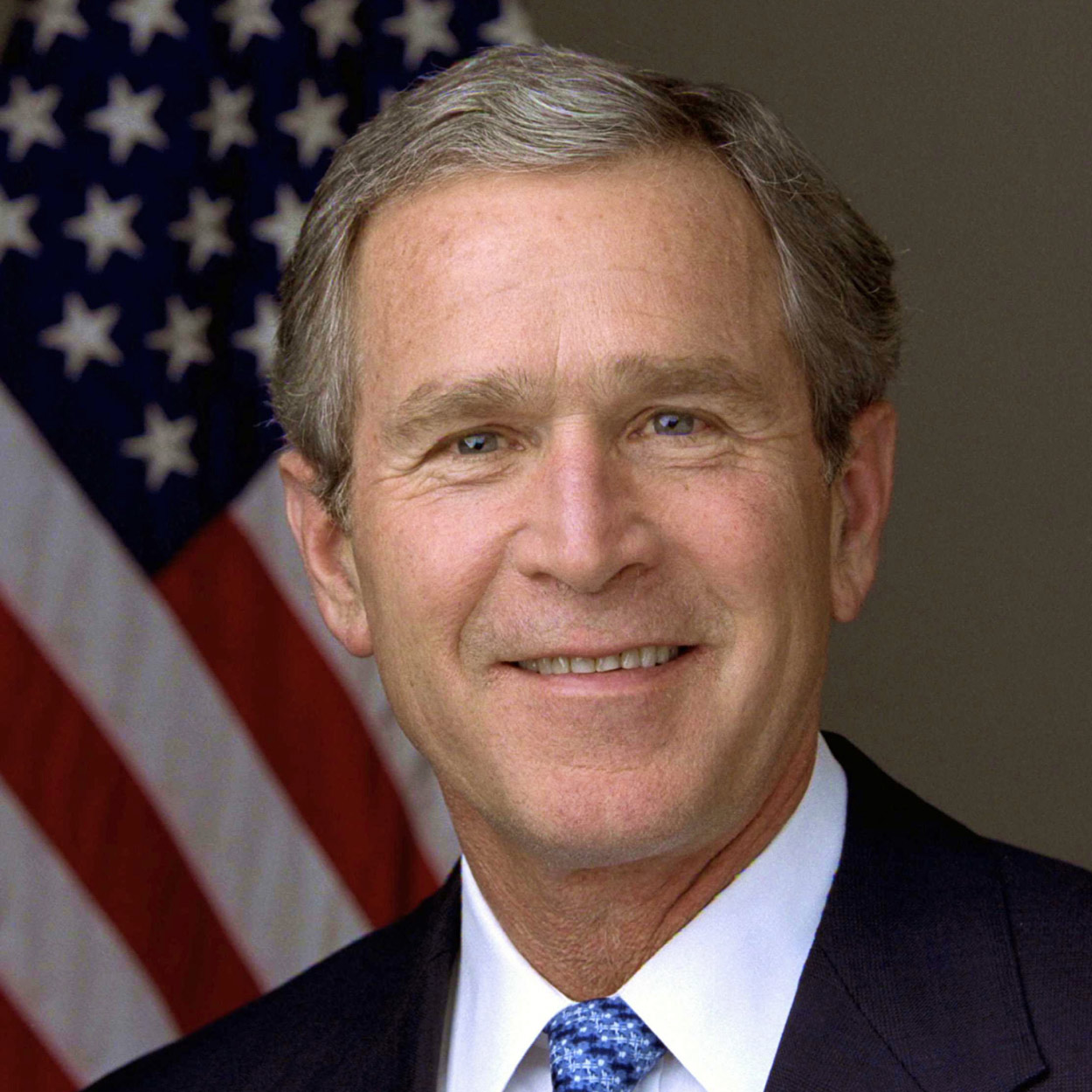President Of The USA In 2007: A Comprehensive Overview
In 2007, the United States was under the leadership of President George W. Bush, who was serving his second term in office. His presidency, which began in January 2001, was marked by significant events both domestically and internationally. This article delves into the political landscape of the United States during that year, examining the key policies, challenges, and the overall impact of his administration. Throughout this exploration, we will utilize the principles of E-E-A-T (Expertise, Authoritativeness, Trustworthiness) to provide a reliable account of the presidency during this pivotal year.
The year 2007 was characterized by a complex backdrop of evolving political dynamics, including the ongoing War in Iraq, economic concerns, and the upcoming 2008 presidential election that would reshape the American political landscape. As we analyze the events of this year, it is important to consider how Bush's decisions influenced both domestic policies and international relations.
This article aims to provide an informative and engaging overview of President George W. Bush's administration in 2007, highlighting critical events, legislative actions, and public sentiment. By examining these elements, readers will gain a deeper understanding of the challenges faced by the Bush administration and the implications for the future of American politics.
Table of Contents
- Biography of George W. Bush
- Personal Data and Biodata
- Political Landscape in 2007
- Domestic Policies of the Bush Administration
- Foreign Policy Challenges
- Economic Conditions in 2007
- Public Sentiment and Approval Ratings
- Legacy of George W. Bush's Presidency
Biography of George W. Bush
George Walker Bush, born on July 6, 1946, in New Haven, Connecticut, served as the 43rd President of the United States from January 20, 2001, to January 20, 2009. He is a member of the Republican Party and the son of George H.W. Bush, the 41st President of the United States.
Early Life and Education
Bush attended Yale University, where he earned a degree in history. He later obtained an MBA from Harvard Business School, becoming the first U.S. president to hold an MBA. Before entering politics, Bush worked in the oil industry and served as the governor of Texas from 1995 to 2000.
Personal Data and Biodata
| Full Name | George Walker Bush |
|---|---|
| Date of Birth | July 6, 1946 |
| Political Party | Republican |
| Term as President | January 20, 2001 - January 20, 2009 |
| Predecessor | Bill Clinton |
| Successor | Barack Obama |
Political Landscape in 2007
In 2007, the political atmosphere in the United States was heavily influenced by the ongoing War in Iraq, which had commenced in 2003. The conflict had generated significant public debate and criticism, with many Americans questioning the rationale behind the war and its execution.
- Discover The Inspiring Journey Of Audra Moore Hughes
- Ivanka Trumps Engagement With Jewish Communities A Closer Look At Her Visit To A Miami Synagogue
As the 2008 presidential election approached, both the Democratic and Republican parties began to rally their candidates. The Democratic field included prominent figures like Barack Obama and Hillary Clinton, while the Republican side saw candidates like John McCain and Rudy Giuliani emerging as contenders.
Domestic Policies of the Bush Administration
President Bush's domestic policies in 2007 focused on several key areas, including education, healthcare, and immigration reform.
Education
The No Child Left Behind Act, enacted in 2001, continued to shape educational policies. The act aimed to improve student performance and close achievement gaps through standardized testing and accountability measures.
Healthcare
Healthcare reform was another significant focus, with the administration proposing initiatives to expand access to health insurance. The Medicare Part D program, which provided prescription drug coverage for seniors, was a notable achievement during his presidency.
Immigration Reform
Immigration reform efforts faced significant challenges. While President Bush advocated for a comprehensive reform plan, including a pathway to citizenship for undocumented immigrants, partisan divisions hindered progress on this front.
Foreign Policy Challenges
Bush's foreign policy in 2007 was primarily dominated by the ongoing conflicts in Iraq and Afghanistan. The administration faced mounting pressure to reconsider its strategies in both regions.
War in Iraq
The surge strategy, implemented in early 2007, aimed to increase troop levels in Iraq to stabilize the country and reduce violence. This strategy was met with both support and criticism, as many Americans remained skeptical about the war's justification and the prospects for success.
Relations with Other Countries
President Bush also navigated complex relationships with countries like Iran and North Korea, focusing on diplomatic efforts while maintaining a firm stance against perceived threats.
Economic Conditions in 2007
The U.S. economy in 2007 experienced signs of strain, with rising concerns about the housing market and increasing mortgage defaults. The Federal Reserve began to take measures to address these economic challenges.
Housing Market Crisis
The housing bubble burst in 2007, leading to a significant decline in home values and a surge in foreclosures. This crisis would later contribute to the larger financial crisis of 2008.
Unemployment Rates
Unemployment rates remained relatively low in 2007, hovering around 4.6%, but the economic indicators pointed to potential trouble ahead.
Public Sentiment and Approval Ratings
Public sentiment regarding President Bush's administration in 2007 was marked by declining approval ratings. As the war in Iraq continued, many Americans expressed dissatisfaction with the direction of the country.
Polling Data
By the end of 2007, Bush's approval ratings had fallen to around 30%, reflecting widespread discontent with his handling of key issues such as the economy and foreign policy.
Legacy of George W. Bush's Presidency
The legacy of George W. Bush's presidency remains a topic of debate among historians and political analysts. His decisions during the War on Terror, particularly the invasion of Iraq, have left a lasting impact on U.S. foreign policy and international relations.
In conclusion, the presidency of George W. Bush in 2007 was marked by significant challenges, including ongoing wars, economic concerns, and a shifting political landscape. As we reflect on this period, it is essential to recognize the complexities of leadership during tumultuous times.
We invite readers to share their thoughts on President Bush's legacy and the events of 2007 in the comments section below. Additionally, feel free to explore more articles on our site for a deeper understanding of American political history.
Thank you for reading! We hope you found this article informative and engaging. We look forward to welcoming you back for more insightful content in the future.



Detail Author:
- Name : Linnie Koch
- Username : zbeer
- Email : xsawayn@gmail.com
- Birthdate : 1992-12-23
- Address : 8518 Isaiah Fork Suite 723 Millieberg, MO 01129-7364
- Phone : +1-407-443-7583
- Company : Rice Group
- Job : Film Laboratory Technician
- Bio : Sunt sed atque et ea voluptates delectus. Ea possimus quae labore non omnis. Et rerum rerum minima assumenda suscipit.
Socials
instagram:
- url : https://instagram.com/lera_cummings
- username : lera_cummings
- bio : Adipisci aut aspernatur beatae. Doloremque cum voluptatem porro quas nostrum voluptatem eum ad.
- followers : 486
- following : 628
tiktok:
- url : https://tiktok.com/@lera.cummings
- username : lera.cummings
- bio : Harum omnis beatae est sit.
- followers : 1095
- following : 1891
linkedin:
- url : https://linkedin.com/in/lera_xx
- username : lera_xx
- bio : Est dolor aliquid voluptatem.
- followers : 941
- following : 1790
twitter:
- url : https://twitter.com/lcummings
- username : lcummings
- bio : Excepturi accusantium et possimus tempore reiciendis sit recusandae. Pariatur possimus eligendi culpa dolorem vel laborum.
- followers : 1216
- following : 241
facebook:
- url : https://facebook.com/cummings2025
- username : cummings2025
- bio : Sapiente iure eaque ut incidunt. Est saepe explicabo ut dolore et beatae quia.
- followers : 4113
- following : 2965